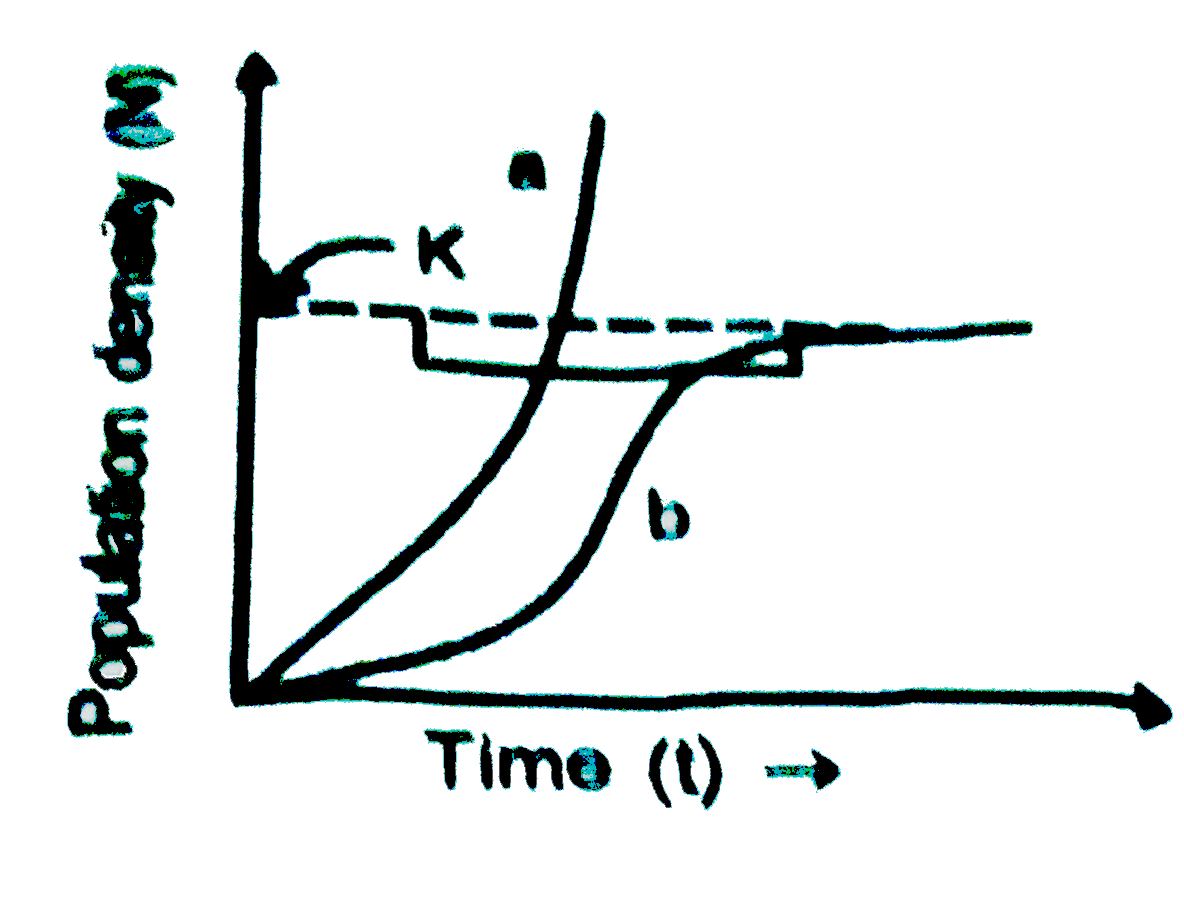(a) Following are the response of different animals to various abiotic factors . Describe each one with the help of an example .
(i) Regulate (ii) conform (ii) Migrate (iv) Suspend
(ii) If 8 individuals in a population of 80 butterflies die in a week , calculate the death rate of population of butterflies during that period .
Step by step video & image solution for (a) Following are the response of different animals to various abiotic factors . Describe each one with the help of an example . (i) Regulate (ii) conform (ii) Migrate (iv) Suspend (ii) If 8 individuals in a population of 80 butterflies die in a week , calculate the death rate of population of butterflies during that period . by Biology experts to help you in doubts & scoring excellent marks in Class 12 exams.
Updated on:21/07/2023Topper's Solved these Questions
- ORGANISMS AND POPULATIONS BOOK - MODERN PUBLICATIONCHAPTER - ORGANISMS AND POPULATIONS EXERCISE - COMPETITION FILE (OBJECTIVE TYPE QUESTIONS)(A. MULTIPLE CHOICE QUESTIONS)
154 Videos
- ORGANISMS AND POPULATIONS BOOK - MODERN PUBLICATIONCHAPTER - ORGANISMS AND POPULATIONS EXERCISE - COMPETITION FILE (OBJECTIVE TYPE QUESTIONS)(B. MATCHING TYPE QUESTIONS: )
4 Videos
- ORGANISMS AND POPULATIONS BOOK - MODERN PUBLICATIONCHAPTER - ORGANISMS AND POPULATIONS EXERCISE - REVISION EXERCISES (VI. LONG ANSWER TYPE QUESTIONS)(A. QUESTIONS FROM STATE BOARD EXAMINATIONS)
12 Videos
- MOLECULAR BASIS OF INHERITANCE BOOK - MODERN PUBLICATIONCHAPTER - MOLECULAR BASIS OF INHERITANCE EXERCISE - CHAPTER PRACTICE TEST (Section - E)
1 Videos
- PRINCIPLES OF INHERITANCE AND VARIATIONBOOK - MODERN PUBLICATIONCHAPTER - PRINCIPLES OF INHERITANCE AND VARIATIONEXERCISE - CHAPTER PRACTICE TEST section-e(Long answer type question)
1 Videos
Similar Questions
Describe the following with one example in each case.
(i) Preservatives (ii) Artificial sweeteners
(iii) Antioxidants (iv) Edible colours
View SolutionStudy the graph given below and answer the questions that follow :
(i) The curve 'b' is described by the following equation :
dNdt=rN{K−NK}
(ii) What does 'K' stand for in this equation ? Mention its significance.
(ii) Which one of the two curves is considered a more realistic one for most of the animal populations ?
(iii) Which curve would depict the population of a species of deer if there are no predators in the habitat ? Why is to so ?

View Solution
Knowledge Check
Which of the following is correct ?
I. Migration is the movement of individuals from a population to another population
II. Emigration is the migration of individuals out of an area
III. Immigration is the migration of individuals into an area
IV Gene flow cannot alter the genetic charecteristics of populationsAI and IIBIII and IVCI, II and IIIDII, III and IVWhich one of the given responses would be a meaningful order of the following words in ascending order?
(i) Poverty (ii) Population
(iii) Death (iv) Unemployment
(v) DiseaseA(iii), (iv), (ii), (v), (i)B(ii), (iv), (i), (v), (ii)C(ii), (iii), (iv), (v), (i)D(i), (ii), (iii), (iv), (v)Fill up the balnks in the following paragraph by selecting the correct option.
When migration of a section of population to another place and population occurs, I change in the original as well as in the new population new genes/ alleles are added to the ii, population and these are lost from the population. These would be a iv if this gene migration, happens multiple times. if the same change occurs by chance, it is called v. sometimes the change in allele frequency is so different in the new sample of population that they become a diffrent species. The original drifted population becomes founders and the effect is called viA(i)(ii)(iii)(iv)(v)(vi)naturalnewoldgene flowgenefounder effectB(i)(ii)(iii)(iv)(v)(vi)gene frequenciesoldnewnatural selectiongene flowbottle neckC(i)(ii)(iii)(iv)(v)(vi)gene frequenciesnewoldgene flowgenetic driftfounder effectD(i)(ii)(iii)(iv)(v)(vi)mutationsoldnewnatural selectiongene flowbottle-necl effect
Which of the following statements are correct?
I. Mortality is the rate of loss of individuals per unit time due to death.
II. Population dispersion affects the size of population.
III. Age distribution influences both natality and mortality of the population.
IV. Realised natality is the actual death rate found under existing conditions.
View SolutionWhich of the following is correct
i. In a population birth rate and death rate refer to per capita births and death respectively
II. In nuature, we rerely find isolated single individuals of species
III. The size of population for any species is stable
IV. Ecological effects of any factors on a population growth are generally reflected in its size / population density
View SolutionConsider the following statement and select the option stating which ones are true (T) and which ones are false (F)
(i) Emigration is the movement of individuals out of a place or country
(ii) Combined contraceptive pills contain synthetic progesterone and estrogen to check ovulation
(iii) Depo-Provera are estrogen derivative injections
(iv) The scientific study of human population is called demography.
View SolutionFollowing table summarises the differences between natality and mortality. Select the incorrect ones.
NatalityMortality(i)Natality is number of births per unit population per unit time.It is number of deaths per unit population per unit time.(ii)It adds new individuals to the population.It removes individuals from the population(iii)It increase the size of population.It decreases the size of population(iv)It increase population density.It reduces population density.(v)It is low when population size is small and high when population size is large.It is high when population size is small and low when population size is large.
View SolutionWhich of the following are necessary for evolution by natural selection to take place?
(i) Offspring resemble their parents more than other individuals in the population.
(ii) Differences among individuals exist and lead to different numbers of successful offspring being produced.
(iii) Individuals adjust their development depending on the enviorment
(iv) Every individual possess enormous fertillity.
View Solution
